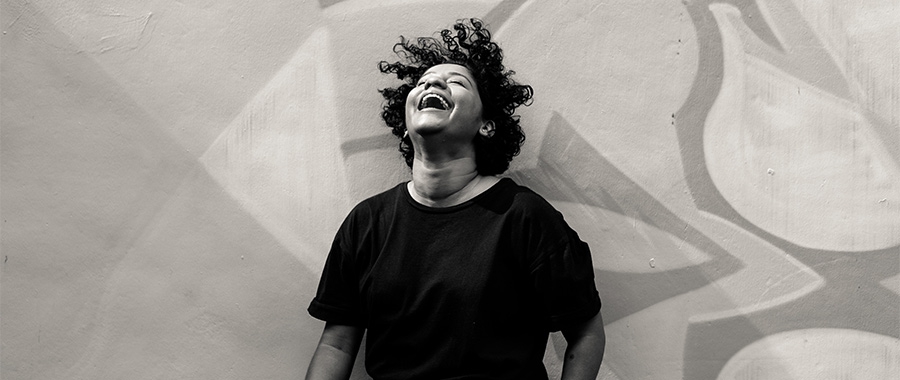The views expressed in our content reflect individual perspectives and do not represent the authoritative views of the Baha'i Faith.
As they say, “your body is your temple.” Without stable mental, emotional, or physical health, it can feel almost impossible to function.
For the longest time, I thought that maintaining my health just meant avoiding things that were unhealthy. It wasn’t until recently that it really clicked for me that I can’t just avoid foods I am sensitive to, or stay away from high-fructose corn syrup—I actually need to take an active approach and add habits to my daily life that truly enrich my health.
For some, this might be obvious, but for whatever reason it took me years to gain this perspective. I’m still in the process of figuring out how to strengthen my discipline and motivation around taking better care of myself, rather than just falling victim to cravings, or feeling like I don’t have time to build new healthy habits.
What do the Baha’i teachings say about our bodies? First, Baha’is believe that our time on this planet is fleeting, and only the beginning of a much longer life. Our bodies are temporary, and only useful in this specific part of our much longer journey. Baha’u’llah, the founder of the Baha’i Faith, said:
… The soul, after its separation from the body, will continue to progress until it attaineth the presence of God, in a state and condition which neither the revolution of ages and centuries, nor the changes and chances of this world, can alter. – Baha’u’llah, Gleanings from the Writings of Baha’u’llah, p. 155.
Naturally, then, in the next world illness will not limit us like it often does in this world:
… The soul of man is exalted above, and is independent of all infirmities of body or mind. That a sick person showeth signs of weakness is due to the hindrances that interpose themselves between his soul and his body, for the soul itself remaineth unaffected by any bodily ailments. – Ibid., p. 153.
In a world that puts such an emphasis on physicality, it can become so, so easy to become negatively obsessed with our bodies and our health. We all need to hear a wider perspective: we are not just the bodies that carry us in this life, but much more.
However, our bodies do still have an influence on how we function:
Looking after one’s health is done with two intentions. Man may take good care of his body for the purpose of satisfying his personal wishes. Or, he may look after his health with the good intention of serving humanity and of living long enough to perform his duty toward mankind. The latter is more commendable. Between material things and spiritual things there is a connection. The more healthful his body the greater will be the power of the spirit of man; the power of the intellect, the power of the memory, the power of reflection will be greater. – Abdu’l-Baha, Star of the West, Volume 5, pp. 229-230.
Because many of the Baha’i writings emphasize sacrificial selflessness, we might walk away with the unhealthy idea that we must neglect ourselves in order to better serve others. But this passage from Abdu’l-Baha clarifies the importance of tending to our bodies while also serving others:
With reference to what is meant by an individual becoming entirely forgetful of self: the intent is that he should rise up and sacrifice himself in the true sense, that is, he should obliterate the promptings of the human condition, and rid himself of such characteristics as are worthy of blame and constitute the gloomy darkness of this life on earth—not that he should allow his physical health to deteriorate and his body to become infirm. – Abdu’l-Baha, Selections from the Writings of Abdu’l-Baha, p. 180.
The Baha’i principle of the harmony between science and religion suggests that I can leverage both spiritual guidance and scientific research to develop my health regimen. When I think about my health, I can look for sound ways to not only improve my physical health, but also my emotional, mental and spiritual health.
In the health world, it feels like every day brings us a new approach to treating and preventing illness. So when I read those daily health discoveries, I try to remind myself to take the time to research the science and read the methods as I map out and adjust my self-care routine.
In addition to familiarizing myself with what the literature says, what actually works for me? Each of our bodies works a little differently—so just assuming that what succeeds for someone else’s body will work for mine can lead me to a faulty conclusion.
For example, I’ve wondered lately how to increase my motivation—something seemingly spiritual, but also something that can deeply affect my body’s well-being. After years of reflection, I know that I do well with structure, but at the moment my work is remote and somewhat on-call. This means that although another person might read their situation and realize that they need to remove some of the structure in their life to flourish, in my case, I need to add structure. I also know that my body is a little more sensitive than others’ when it comes to food, so a lot of my research and focus needs to go towards ensuring that what I eat is right for my body.
Though our bodies don’t represent of our true essence, there is a connection between our health and how we manifest our most spiritually-present and vibrant selves. Recognizing this connection guides and enriches our journey to developing better habits and attitudes—and a healthier body and spirit.
















Comments
Sign in or create an account
Continue with Googleor